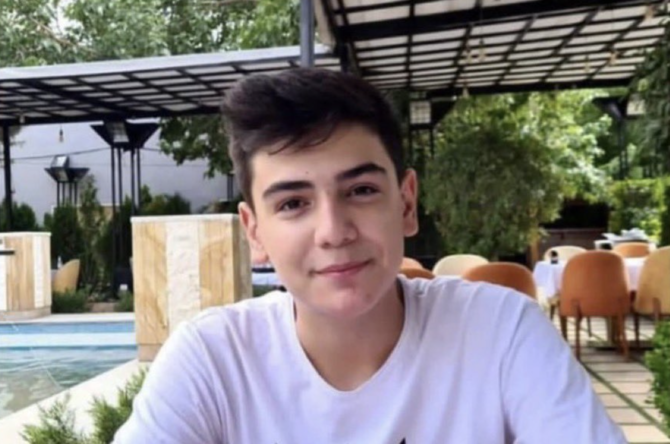PARIS: US President Donald Trump should tell Israel’s leader Benjamin Netanyahu “enough is enough,” a former Israeli prime minister told AFP, denouncing the continuation of the war in Gaza as a “crime” and insisting a two-state solution is the only way to end the conflict.
Ehud Olmert, prime minister between 2006-2009, said in an interview in Paris that the United States has more influence on the Israeli government “than all the other powers put together” and that Trump can “make a difference.”
He said Netanyahu “failed completely” as a leader by not preventing the October 7, 2023 attack by Palestinian militant group Hamas that sparked the war.
He said while the international community accepted Israel’s right to self-defense after October 7, this changed when Netanyahu spurned chances to end the war in March and instead ramped up operations.
Netanyahu “has his personal interests which are prioritized over what may be the national interests,” Olmert charged.
Analysts say Netanyahu fears that if he halts the war, hard-line members of his coalition will walk out, collapsing the government and forcing elections he could lose.
“If there is a war which is not going to save hostages, which cannot really eradicate more of what they did already against Hamas and if, as a result of this, soldiers are getting killed, hostages maybe get killed and innocent Palestinians are killed, then to my mind this is a crime,” said Olmert.
“And this is something that should be condemned and not accepted,” he said.
Trump should summon Netanyahu to the White House Oval Office and facing cameras, tell the Israeli leader: “’Bibi: enough is enough’,” Olmert said, using the premier’s nickname.
“This is it. I hope he (Trump) will do it. There is nothing that cannot happen with Trump. I don’t know if this will happen. We have to hope and we have to encourage him,” said Olmert.
Despite occasional expressions of concern about the situation in Gaza, the US remains Israel’s key ally, using its veto at the UN Security Council and approving billions of dollars in arms sales.
Hamas’s unprecedented attack on Israel resulted in the deaths of 1,219 people, mostly civilians, according to an AFP tally based on official figures.
Militants abducted 251 hostages, 54 of whom remain in Gaza, including 32 the Israeli military says are dead.
Israel’s retaliatory offensive has killed 54,880 people, mostly civilians, according to the Gaza health ministry, figures the United Nations deems reliable.
Along with former Palestinian foreign minister Nasser Al-Qidwa, Olmert is promoting a plan to end decades of conflict between Israel and the Palestinians to create a Palestinian state alongside a secure Israel.
Both sides would swap 4.4 percent of each other’s land to the other, according to the plan, with Israel receiving some West Bank territory occupied by Israeli settlers and a future Palestinian state territory that is currently part of Israel.
Ahead of a meeting this month in New York co-hosted by France and Saudi Arabia on steps toward recognizing a Palestinian state, Olmert said that such a plan is “practical, is doable, is relevant, is valid and is real.”
Olmert spent over a year in prison from 2016-2017 after being convicted in corruption scandals that ended his political career and efforts to forge peace.
A longtime political rival of Netanyahu even though they both emerged from the same Likud right-wing party, he also faces an uphill struggle to convince Israeli society where support for a Palestinian state, let alone land swaps, is at a low ebb after October 7.
“It requires a leadership on both sides,” said Olmert. “We are trying to raise international awareness and the awareness of our own societies that this is not something lost but offers a future of hope.”
Al-Qidwa, who is due to promote the plan alongside Olmert at a conference organized by the Jean-Jaures Foundation think tank in Paris on Tuesday, told AFP the blueprint was the “only game in town and the only doable solution.”
But he said societies in Israel and the Palestinian territories still had to be convinced, partly due to the continuation of the war.
“The moment the war comes to an end we will see a different kind of thinking. We have to go forward with acceptance of the co-existence of the two sides.”
But he added there could be no hope of “serious progress with the current Israeli government and current Palestinian leadership” under the aging president Mahmud Abbas, in office now for two decades.
“You have to get rid of both. And that is going to happen,” he said, labelling the Palestinian leadership as “corrupt and inept.”
























